
We get so excited when we hear people are getting into God’s Word and wrestling with the text. Recently, we received a question on Facebook about blessing God. We thought others might be interested in the response, so we decided to create a blog post. Our Study Bible and Reference brand manager kindly agreed to share on this topic.
Question: “The only way I can see we can bless GOD is by obeying him. To say “bless you LORD” does not seem possible. . . . We can ask GOD to bless others or to bless us, but we are only man with no special powers to apply blessing to others. Your thoughts please!”
Answer from Kevin R. O’Brien, ThM, Study Bible and Reference Brand Manager:
First, thanks for reaching out with this question. Second, I completely understand why this is confusing for so many people. Many songs we sing include words like “I will bless the Lord” or “Bless the Lord, oh my soul.” It seems backwards because it is clearly God who blesses us, not the other way around, right? We see throughout Scripture that God blesses his people. God tells Abraham:
“I will bless those who bless you and curse those who treat you with contempt. All the families on earth will be blessed through you.” Genesis 12:3
We see it in the covenants of the Old Testament where God promises to care for his people:
“If you follow my decrees and are careful to obey my commands, I will send you the seasonal rains. The land will then yield its crops, and the trees of the field will produce their fruit. . . . You will eat your fill and live securely in your own land.
“I will give you peace in the land, and you will be able to sleep with no cause for fear. I will rid the land of wild animals and keep your enemies out of your land. . . .
“I will look favorably upon you, making you fertile and multiplying your people. And I will fulfill my covenant with you. You will have such a surplus of crops that you will need to clear out the old grain to make room for the new harvest! I will live among you, and I will not despise you. I will walk among you; I will be your God, and you will be my people.” Leviticus 26:3-6, 9-12

We see it in the Psalms:
For you bless the godly, O Lord;
you surround them with your shield of love. Psalm 5:12
The Lord remembers us and will bless us.
He will bless the people of Israel
and bless the priests, the descendants of Aaron.
He will bless those who fear the Lord,
both great and lowly. Psalm 115:12-13
And we of course see it in the Beatitudes of Jesus and the writings of Paul.
“God blesses those who are poor and realize their need for him,
for the Kingdom of Heaven is theirs.
God blesses those who mourn,
for they will be comforted.
God blesses those who are humble,
for they will inherit the whole earth.
God blesses those who hunger and thirst for justice,
for they will be satisfied.
God blesses those who are merciful,
for they will be shown mercy.
God blesses those whose hearts are pure,
for they will see God.
God blesses those who work for peace,
for they will be called the children of God.
God blesses those who are persecuted for doing right,
for the Kingdom of Heaven is theirs.” Matthew 5:3-10
All praise to God, the Father of our Lord Jesus Christ, who has blessed us with every spiritual blessing in the heavenly realms because we are united with Christ. Ephesians 1:3

So how can we possibly bless God?
This is where the New Living Translation is so helpful. Just like in English, Hebrew words often have a range of meaning. When we read familiar passages like Psalm 100:4, Psalm 103:2, or Psalm 104:1, we can easily get confused. You are probably used to reading words like “bless his name!” or “Bless the Lord” in these verses. Here they are in the NLT (I have italicized the word that other translations often render “bless”):
Enter his gates with thanksgiving;
go into his courts with praise.
Give thanks to him and praise his name. Psalm 100:4
Let all that I am praise the Lord;
may I never forget the good things he does for me. Psalm 103:2
Let all that I am praise the Lord.
O Lord my God, how great you are!
You are robed with honor and majesty. Psalm 104:1
In Hebrew the word is the same—barak—but there is a subtle change in meaning. God gives a blessing to us; we offer praise to him. His giving is downward, from a greater to a lesser. Our offering is upward, from a lesser to a greater.
The Scriptures show us that God blesses us in many ways—through material things, through the rain and good harvests, and most importantly, by his presence with us. In Genesis 48, Jacob blesses the sons of Joseph.

Here is what the article on blessing in the NLT Study Bible has to say:
Genesis 48:8-20
Jacob adopted Joseph’s sons and blessed them (Gen 48:3-7), just as his father Isaac had blessed him (27:27-29). Blessing enables, enhances, and enriches life, whereas a curse diminishes it (Lev 26:14-39). Blessing is issued publicly by a benefactor and provides power for prosperity and success. Blessing is essential to covenant relationships in that it guides and motivates the parties to obey the covenant’s stipulations (Lev 26:3-13; Deut 28:1-14). Obedience leads to blessing, whereas rebellion brings a curse.
The initial realm of blessing is creation, in which God as Creator is the ultimate granter of blessing for animals (Gen 1:22) and humans (1:28; see Ps 104; 128:3-4). Humans also serve as channels of divine blessing. Abraham was called to be a blessing to the nations (Gen 12:2-3). The institutions of family (27:27-29), government (1 Kgs 8:14, 44, 52, 66), and religion (Gen 14:19; Lev 9:22) are nurtured, commissioned, and purified through blessing. Israel’s priests mediated God’s blessing to Israel (Num 6:24-26; Deut 10:8).
Three basic characteristics can be observed in OT blessings: (1) They are conveyed from a greater party to a lesser one (Gen 32:26; Heb 7:6-7); (2) They are signs of favor that result in well-being and productivity (Deut 28:3-7); and (3) They acknowledge that all power and blessing stem from the Creator. All blessings have their source in God’s love (Deut 7:7-8, 12-15).
God’s blessings in Genesis are in striking contrast with the pagan religions of antiquity. For pagan religions, fortunes and fertility of flock, family, and fields came about in sympathetic magic through cultic observances at their shrines—profane customs that were designed to induce the deities to act on their behalf so that the cycle of life could be maintained. In Genesis, all of life, fertility, and blessing came by God’s decree, for he is the only true and living God.
In the NT, the emphasis of blessing shifts from the material to the spiritual, from the nation to the church, and from the temporal to the eternal (Matt 6:25; Eph 1:3; 1 Pet 3:9). In his death, Jesus bore the consequences of sin’s curse (Gal 3:13), established God’s kingdom (Matt 3:2; 5:3-20; John 3:3-5), and blessed its citizens with forgiveness of sin (Rom 4:6-25). Now believers are called to bless the world (Luke 6:27-28; Rom 12:14; see also Isa 19:24; Zech 8:13).
As you can see, our questioner was correct—obedience does have everything to do with how we “bless” God. It is our tangible response of praise to the God who blesses us.





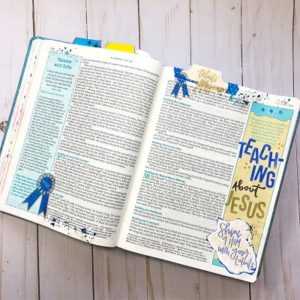





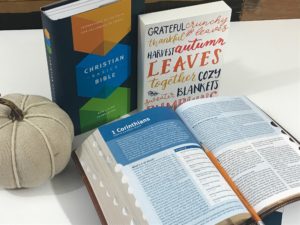
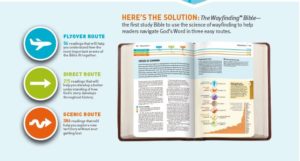
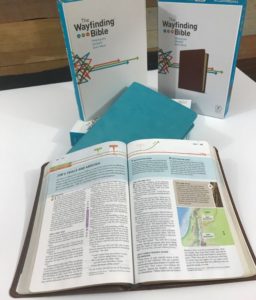
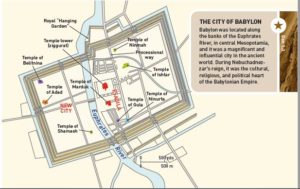
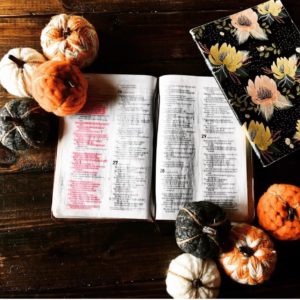
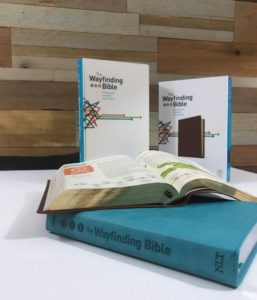
 Tyndale House Publishers is saddened by the death of Grant R. Osborne—our friend, colleague, and a member of the Bible Translation Committee for the Holy Bible, New Living Translation (NLT). But we do not grieve as those who have no hope. We rejoice with Grant that he is now in the presence of his Savior.
Tyndale House Publishers is saddened by the death of Grant R. Osborne—our friend, colleague, and a member of the Bible Translation Committee for the Holy Bible, New Living Translation (NLT). But we do not grieve as those who have no hope. We rejoice with Grant that he is now in the presence of his Savior.








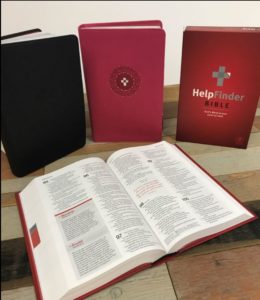




Recent Comments